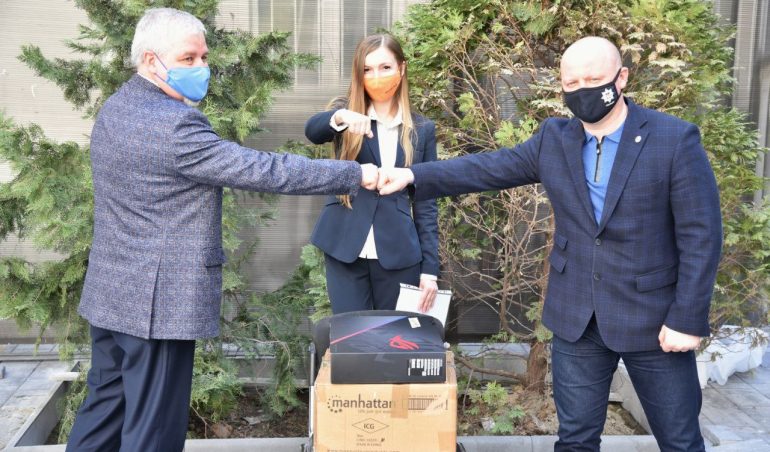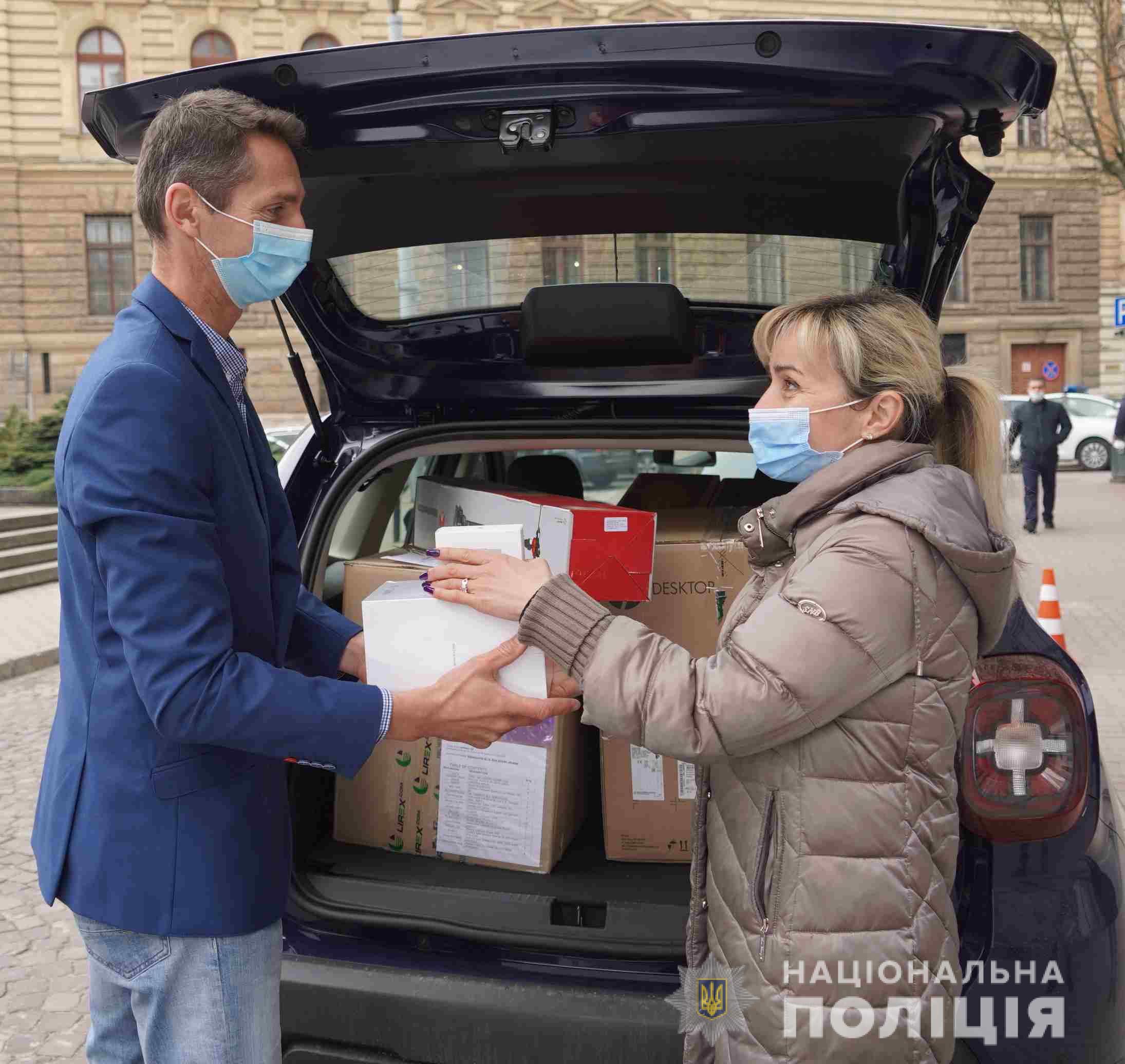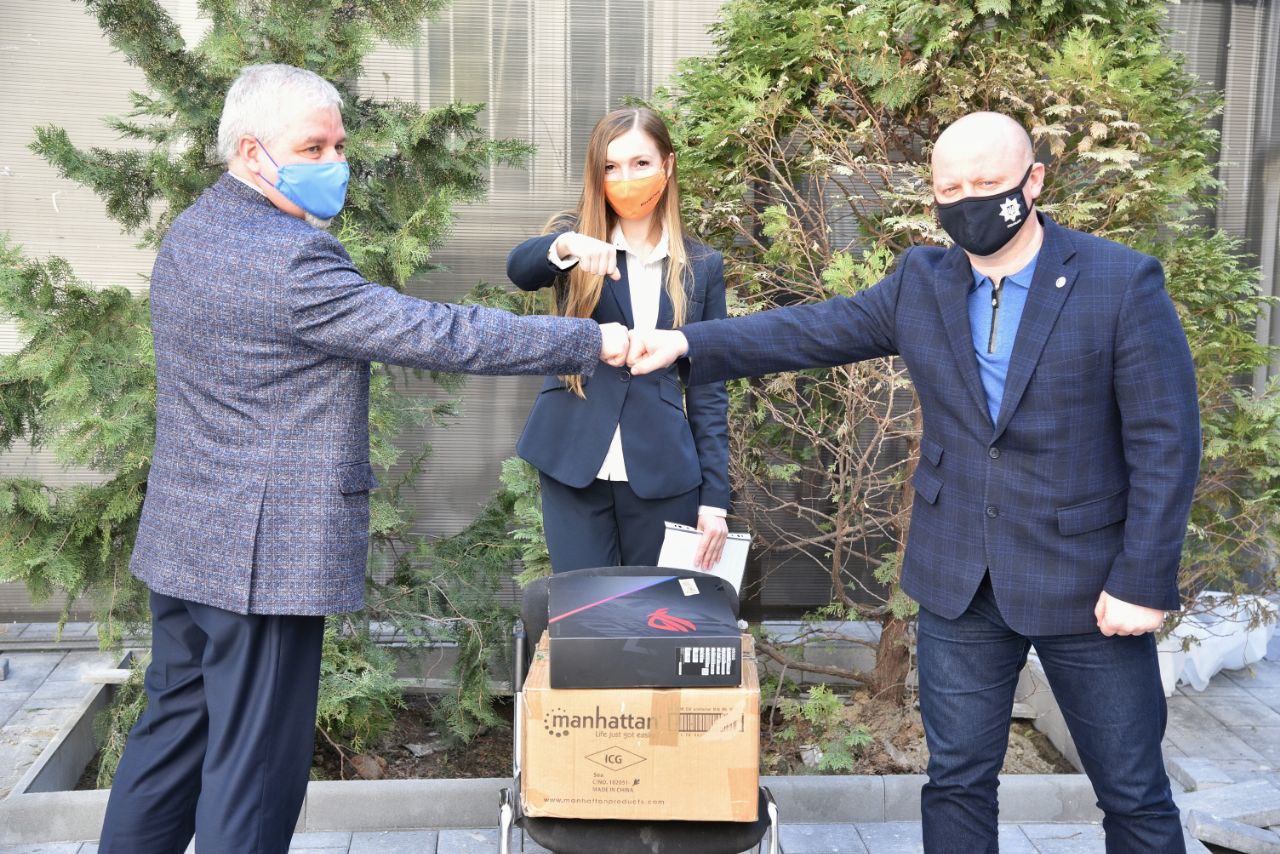EUAM helps Ukrainian police to communicate more proactively and preventively
June 17, 2021
The European Union Advisory Mission Ukraine (EUAM) has just completed a two-year project aspiring to give additional quality and more relevance to the regional communication of the National Police of Ukraine (NPU). The project was successfully carried out in four Ukrainian regions by communications advisers from EUAM’s Strategic Communications (StratComms) Unit.
For the past two years, experts from EUAM’s StratComms Unit have cooperated closely with NPU’s Communication Departments in Lviv, Odesa, Kharkiv, and Donetsk regions to conduct research, deliver advice and training, and donate communication equipment.
“The rationale behind the project has been to identify ways to improve the NPU’s regional communication approach building on ‘best European practices’. Relevant proactive information which can prevent citizens from being exposed to risks and threads plays an indispensable role in raising the public’s trust in its police service and thus to the reform of the Ukrainian police,” explained Strategic Communications Adviser Ilmar Kahro. “To be focused and accurate in our recommendations, we decided to apply a systemic method based on a combination of field studies and research with a sociological perspective. This method has proved extremely efficient and has enabled us to provide clear evidence-based advice and recommendations to each of the regions.”
Oksana Blishchik, Head of the NPU’s central Communication Department in Kyiv confirmed the project’s potential: “Despite this project was carried in just four regions, the advice provided by EUAM’s communication experts contains multiple universal recommendations which will be relevant for our Regional Communication Departments across Ukraine. In addition, the equipment donated by EUAM will help us to improve photo and video quality in our communication. We are extremely grateful to the Mission for their advice and mentoring and look forward to furthering our cooperation.”
Do less, but increase the relevance
The initial phase of the project concentrated on understanding why, how, and to whom the regional police communicated. For this purpose, EUAM’s StratComms advisers conducted field visits to each of the regions to carry out a situational analysis. These were followed by two waves of media and social media content analysis, documenting when and what the police actually communicated.
“Our research showed that the NPU in the regions produced and disseminated an astonishing amount of information. Our advice was to focus more on the quality of the content. To communicate less, but to make it more relevant and useful for the ordinary citizen. Pre-planned and proactive communication focusing on prevention helps much better to achieve the operational priorities of the police than reporting every minor incident without putting it into a context,” added Ilmar Kahro.
Also, our research revealed that the regions, in which the NPU were successful in communicating more preventively, showed overall better results in positive sentiment both in the news and on social media platforms. “Social media needs to be social. That is why we encouraged the Regional NPU Press Officers to use their social media channels not only to share information but to ask for feedback and engage in discussions with their communities”, concluded EUAM Strategic Communications Officer Kateryna Shahina.
Consultations and equipment donations
After each wave of content analysis, the StratComms Team delivered its recommendations to the Heads of NPU Regional Communication Departments. To assist the implementation of the recommendations, EUAM’s StratComms Advisers provided consultations and donated communication equipment (e.g. cameras, editing software, etc.) to the NPU Communication Departments in the four regions, the NPU’s central Communication Department in Kyiv, and the Kyiv City Police.
The EUAM StratComms Unit will continue supporting the NPU in the field of strategic communication to contribute to raising its level of public trust, transparency, and accountability.






